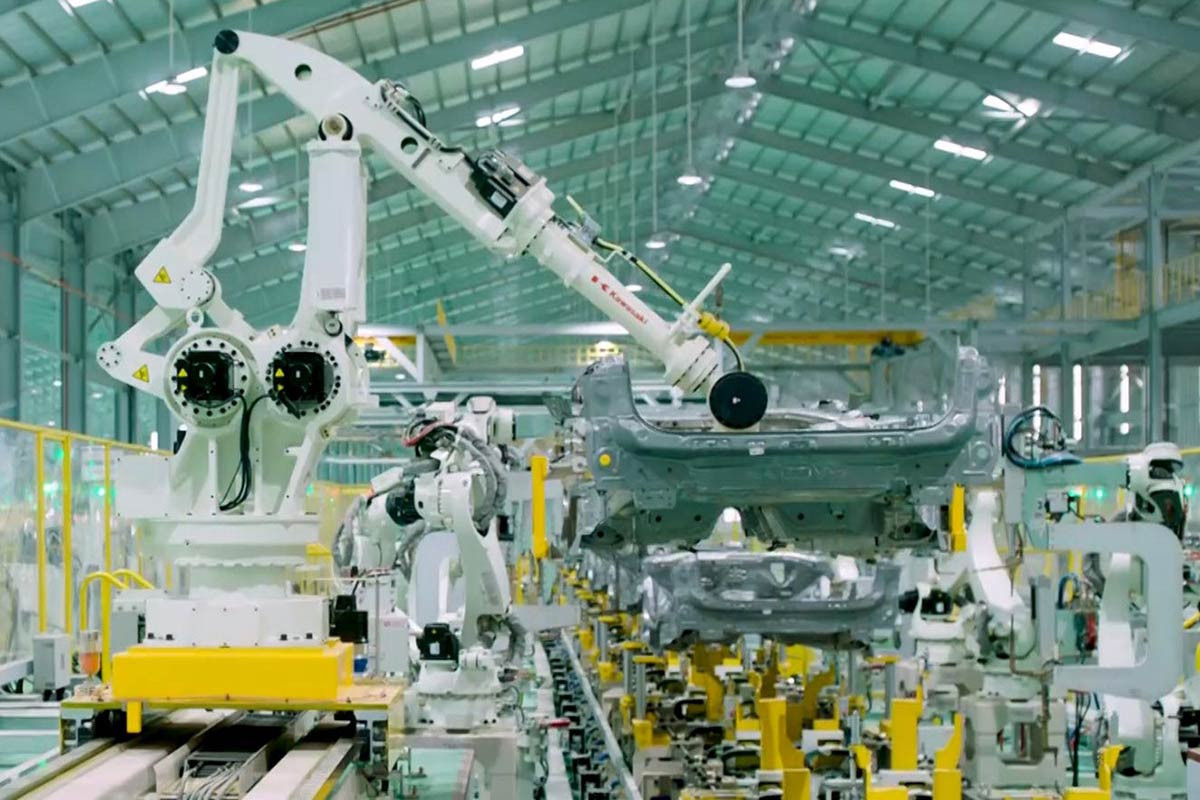
While existing projects demand significant capital, the conglomerate, led by president Tran Ba Duong, plans to inject an average of VND22,730 billion annually into this risky new venture.
On June 4, Duong sent the second letter to employees, partners, and the public regarding the group’s proposal to join the $67 billion North-South high-speed railway project.
He said the project company THACO plans to raise 20 percent of capital, worth VND312 trillion, with THACO itself securing VND159,120 billion over seven years, averaging VND22,730 billion yearly.
Duong also announced the profit plan for 2025-2027 to convince the public and stakeholders about the financial capacity of the group. THACO expects the group's profit to grow dramatically from VND3,228 billion in 2024 to VND16,089 billion in 2027, a fivefold increase in just three years.
However, analysts argue that even if this ambitious scenario occurs, VND16,000 billion annually may not be high enough to cover THACO’s current investment needs, let alone the railway project. The group faces significant financial strain from incomplete existing projects.
In his early 2025 message, Duong announced the internal investment disbursement plan, exceeding VND24,000 billion for subsidiaries, including THACO AGRI, THACO INDUSTRIES, THADICO (Dai Quang Minh), THISO, THILOGI, and THACO Chu Lai.
The fact that the total internal investment far exceeds the expected profit figure and is higher than the capital of VND22,730 billion needed for the high-speed railway project each year shows that the group's resources are currently under pressure.
Meanwhile, THACO’s financial reports to the Hanoi Stock Exchange show a debt-to-equity ratio consistently above 2 in recent years, reflecting heavy reliance on loans while profits do not correspond with investment expansion.
Thus, THACO’s ability to arrange VND22,730 billion annually for the railway project remains questionable.
What is the solution to the 'huge' profit scenario?
THACO’s 2025-2027 profit growth plan has raised doubts about feasibility, as nearly all subsidiaries are expected to see exponential gains in three years.
THACO AGRI hopes to see profit soar from a modest VND3 billion in 2024 to VND2,631 billion by 2027— an 877-fold increase within three years.
THACO AGRI has caused a headache to the group for many years. In 2024, this banana growing and pig farming enterprise only made a profit of VND3 billion, though it reported post-tax profit of VND5 billion in the first half 2024.
This means that in the second half of 2024, THACO AGRI continued to take a loss. Previously, the loss recorded by the company was even larger: in 2021 it lost VND514 billion, in 2022 it lost VND869 billion, and in 2023 it started to make a slight profit of VND42 billion.
Duong's ambition of a jump in profit is also placed on THADICO (Dai Quang Minh) with the Sala urban area project (Thu Thiem, HCM City). This enterprise is expected to achieve VND4,545 billion in profit in 2027, an increase of nearly 19 times compared to 2024.
Started in 2013, Sala remains incomplete due to prolonged legal issues. Duong hopes Decree No 91, issued April 24, 2025, will resolve these, enabling progress and making THADICO a financial pillar.
Other subsidiaries like THACO INDUSTRIES, THILOGI (logistics), and THISO (retail) are also expected to bring big money to the group, with a projected profit growth rate of 3-8 times in a short period. Amid market volatility, weak consumer demand, and THACO AGRI’s lack of stable positive cash flow, these projections raise skepticism among experts.
Though THACO plans to call for co-investors for the railway project, attracting private capital for infrastructure, especially rail, is challenging due to long investment recovery periods. THACO will likely bear the primary financial burden, intensifying pressure on its already strained multi-sector investment ecosystem.
In late May, THACO proposed investing in the North-South high-speed railway, using its own capital and legally mobilized funds.
The group will apply rail technology and electrification, ensuring modernity and international standards on the principle that THACO and domestic enterprises will cooperate to receive reasonable technology transfer from the world's leading experienced partners in Europe (Germany, France, etc); Asia (Japan, Korea, etc).
Additionally, THACO will train personnel to master technology in infrastructure construction, locomotive and carriage production, signaling and control systems, and railway operation management. This aims to establish a domestic railway industry and support foundational sectors like heavy industry (metallurgy, mechanics) and digital industries.
THACO prioritizes partnerships and joint ventures with local enterprises for components and tasks that can be handled domestically.
Manh Ha